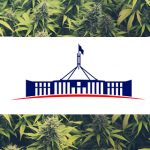Cannabis Legalisation Is Creeping Closer for Canberra

The ACT Legislative Assembly health committee last week tabled its report on the legislation that would see the personal possession and use of cannabis legalised in the capital territory. And with a great sigh of relief, the review recommended the bill be supported subject to some amendments.
The Personal Cannabis Use Bill was introduced into ACT parliament by Labor backbencher Michael Pettersson in November last year. The legislation provides that the possession of up to 50 grams of cannabis be made lawful, along with the home growing of a number of plants.
The proposed personal use legalisation system would replace the cannabis decriminalisation scheme that’s been operating in Canberra since 1992. The changes would abolish the threat of criminal sanctions, undermine the black market, and bring the territory further into line with global trends.
The initial legislation had the in-principle support of most members of parliament, with both Labor and the Greens behind it. And now that the health committee has given it the green light, it’s thought that an amended bill will also be backed by the majority.
Although,conservative forces are continuing to grasp onto the idea that because Commonwealth laws would still provide that the personal possession of the plant is illegal, ACT police officers would be required to enforce that measure.
Enhanced cultivation in clubs
“The committee has done a good job in their scrutiny role,” Mr Pettersson told Sydney Criminal Lawyers. “They have proposed some amendments, many of which have already been flagged by ministers.”
Following the first recommendation, which was the bill should be supported, the committee goes onto recommend that the maximum number of plants an individual is allowed to cultivate at home be increased from four up to a total of six.
And another key recommendation is to make allowances for the artificial cultivation of plants indoors, so as to ensure that cannabis can be readily grown during the winter months in the capital territory, when the conditions don’t suit the tropical plant.
The health committee also recommends that the legislation allows for the establishment of cannabis social clubs, which would permit groups of up to 10 people to cultivate the substance together and distribute it amongst themselves, while trading in it with others would be prohibited.
Pettersson said he believes the committee recommendations are “worthy of consideration as they would address some of the issues that exist currently” in the legislation and would continue to if it wasn’t amended.
Pesky federal laws
And then there’s the issue around Commonwealth and territory cannabis possession laws not lining up if the bill is successful. This was raised as a concern by ACT chief police officer Ray Johnson in March, when he asserted that local officers would still be required to enforce the federal law.
When it comes to inconsistencies in federal and state laws,section 109 of the Australian Constitution provides that when the laws don’t match up the federal laws override those of states and territories.
As a remedy to this, the health committee recommends in its report that in the case of a person being prosecuted for cannabis possession under the Commonwealth laws, the ACT government steps in to defend them.
But, as an example of how this conflict doesn’t necessarily pose an issue,NSW law provides that it’s lawful to be in the possession of a small quantity of a prohibited drug in and around the Kings Cross safe injecting facility. And in this instance, officers don’t find it necessary to enforce the federal law.
“As always, the federal parliament can override the ACT by passing specific legislation on this issue,” Mr Pettersson pointed out. “But, based on current Commonwealth law, I believe the ACT can legalise cannabis.”
The Labor MLA further explained that federal laws allow for individuals to be dealt with under territory laws, so “if they are dealt with under Commonwealth law there exist defences for that cannabis use if it is justified or excused by territory law”.
An overdue overhaul
Another significant recommendation made by the health committee is that the ACT government and local police collaborate on adopting a drug driving regime that has a focus on ascertaining whether a driver is impaired.
Currently, ACT police are only testing drivers for traces of three select drugs in their systems: amphetamines, MDMA and THC, the psychoactive ingredient of cannabis. This is the same as the NSW model, except in this state, officers test for the presence of cocaine as well.
And as has been shown in the NSW courts, this type of testing allows for tiny traces of a drug to result in a positive finding and this has seen individuals charged with cannabis driving weeks after having last smoked a joint, as well as when there are traces in their system due to passive smoking.
Following the release of the committee report, the ACT police union said it wasn’t sure if the technology for testing THC impairment levels exists. However, this is something that could probably be rectified if someone in the office did a quick Google search.
Since February 2012, Norwegian authorities have had a roadside drug testing regime in place that tests for scientifically verified impairment levels of 20 legal and illegal non-alcohol drugs, and this includes THC.
Green with envy
“The next step is for members of the ACT Legislative Assembly to consider the recommendations of the inquiry,” Mr Pettersson explained, “and for members to draft any amendments they want to bring forward, when the bill is brought back for debate in the coming months.”
And to be sure, cannabis advocates from around the country will be keeping their attention focused on developments in the ACT chamber, as it looks more than likely that the herb will be legal to possess, consume and home grow in the capital of this country in the not-too-distant future.







